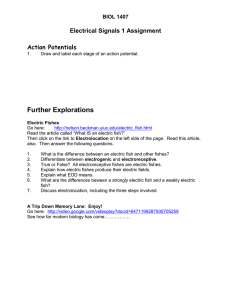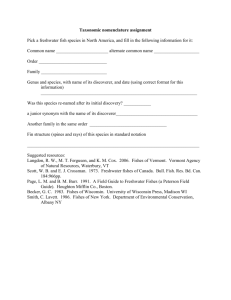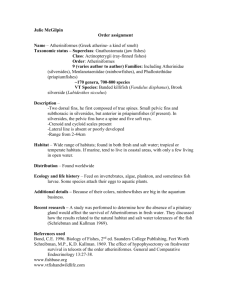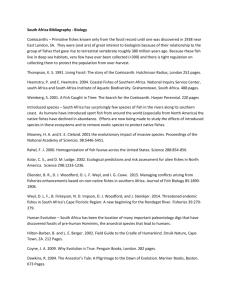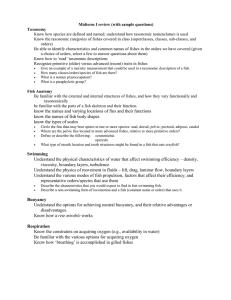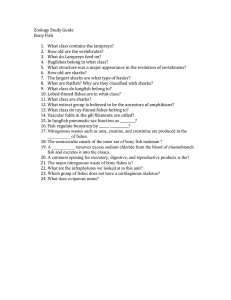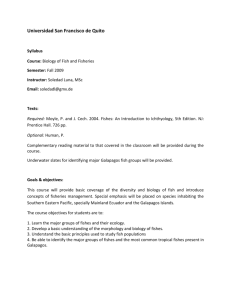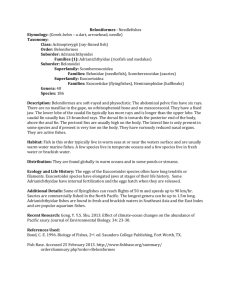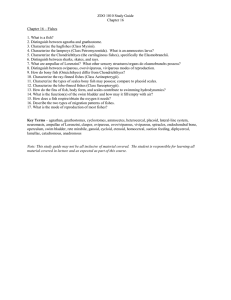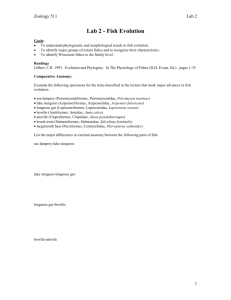WFB 232 Ichthyology Chelsea Mitchell Ateleopodiformes (Greek
advertisement
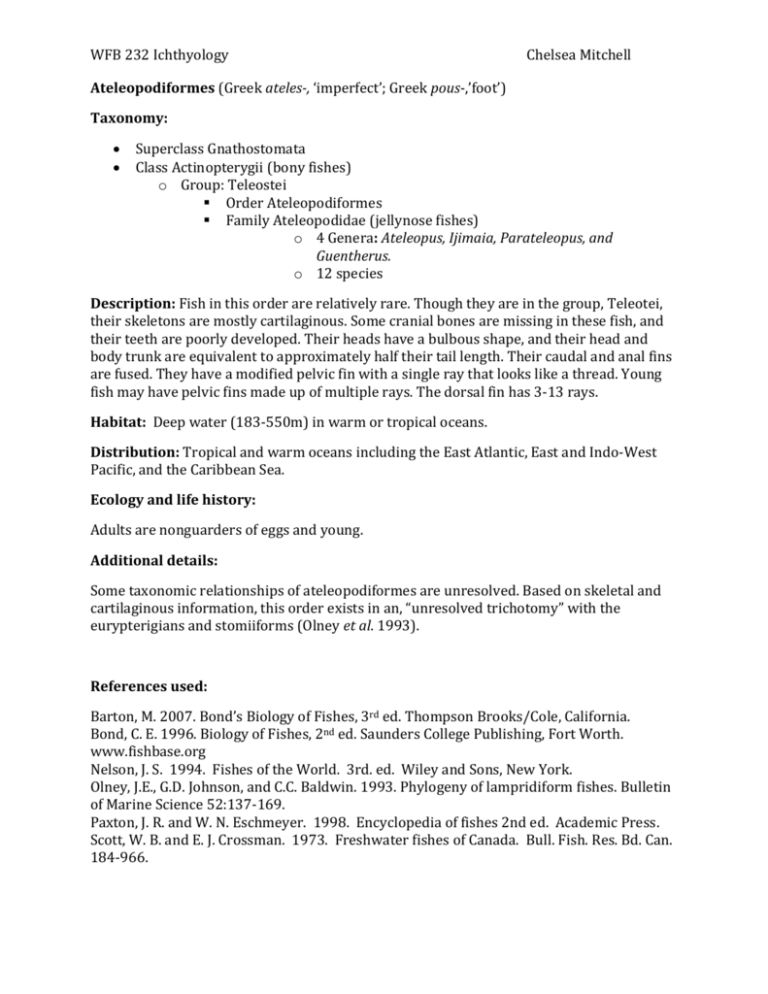
WFB 232 Ichthyology Chelsea Mitchell Ateleopodiformes (Greek ateles-, ‘imperfect’; Greek pous-,’foot’) Taxonomy: Superclass Gnathostomata Class Actinopterygii (bony fishes) o Group: Teleostei Order Ateleopodiformes Family Ateleopodidae (jellynose fishes) o 4 Genera: Ateleopus, Ijimaia, Parateleopus, and Guentherus. o 12 species Description: Fish in this order are relatively rare. Though they are in the group, Teleotei, their skeletons are mostly cartilaginous. Some cranial bones are missing in these fish, and their teeth are poorly developed. Their heads have a bulbous shape, and their head and body trunk are equivalent to approximately half their tail length. Their caudal and anal fins are fused. They have a modified pelvic fin with a single ray that looks like a thread. Young fish may have pelvic fins made up of multiple rays. The dorsal fin has 3-13 rays. Habitat: Deep water (183-550m) in warm or tropical oceans. Distribution: Tropical and warm oceans including the East Atlantic, East and Indo-West Pacific, and the Caribbean Sea. Ecology and life history: Adults are nonguarders of eggs and young. Additional details: Some taxonomic relationships of ateleopodiformes are unresolved. Based on skeletal and cartilaginous information, this order exists in an, “unresolved trichotomy” with the eurypterigians and stomiiforms (Olney et al. 1993). References used: Barton, M. 2007. Bond’s Biology of Fishes, 3rd ed. Thompson Brooks/Cole, California. Bond, C. E. 1996. Biology of Fishes, 2nd ed. Saunders College Publishing, Fort Worth. www.fishbase.org Nelson, J. S. 1994. Fishes of the World. 3rd. ed. Wiley and Sons, New York. Olney, J.E., G.D. Johnson, and C.C. Baldwin. 1993. Phylogeny of lampridiform fishes. Bulletin of Marine Science 52:137-169. Paxton, J. R. and W. N. Eschmeyer. 1998. Encyclopedia of fishes 2nd ed. Academic Press. Scott, W. B. and E. J. Crossman. 1973. Freshwater fishes of Canada. Bull. Fish. Res. Bd. Can. 184-966.
